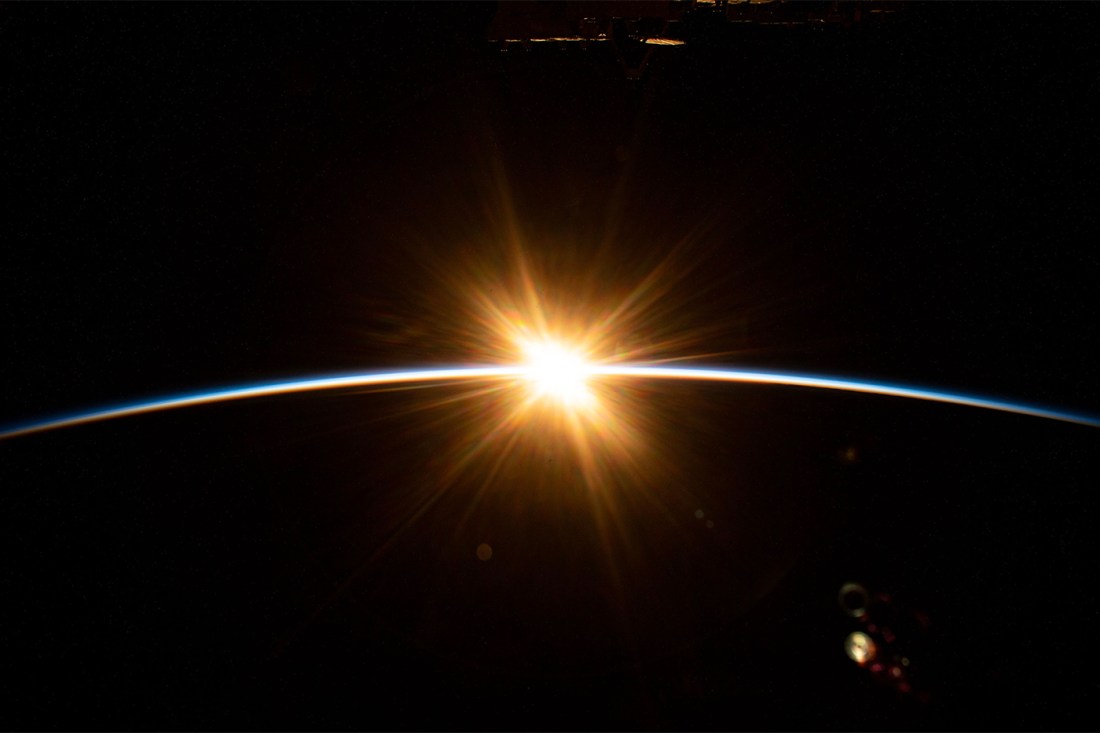The key to international space cooperation is developments in biotechnology, Northeastern researchers say
A new report from a group of Northeastern researchers explores across disciplines how biotech can ensure safe, sustainable life beyond Earth.

At some point in the future, humanity will venture into outer space to settle on distant planets. But before that can happen, governments, scientists and experts around the world must figure out how to make life on those alien worlds safe and sustainable.
As lovers of sci-fi can already attest, the key to achieving civilization in space lies in biotechnology. A group of Northeastern professors, collaborating under the auspices of the Center for International Affairs & World Cultures, have come together to produce a report exploring that very idea.
“After we came together, it became clear that this is actually a very pressing issue at the forefront of new technological advancements that are occurring — both simultaneously in space and in biotech,” says Mai’a Cross, dean’s professor of political science, international affairs and diplomacy, who spearheaded the collaborative study.
The report, titled “A Policy Framework for International Cooperation in Space Biotechnology,” is the result of a grant from the Carnegie Corporation of New York and published by the Carnegie Council for Ethics in International Affairs. The project convened a series of expert meetings to explore the ethical, policy and scientific dimensions of international space cooperation, with the goal of articulating a set of principles that would help steer future biotech research and policymaking in space.
The group includes Cross; John Basl, a philosophy professor who specializes in AI and data ethics; Gokce Altin Yavuzarslan, an assistant professor whose focus is in novel materials and 3D printing; Brian Helmuth, a professor of marine and environmental science; Ryan Morhard, affiliated faculty with the Center for International Affairs & World Cultures; and Anncy Thresher, an assistant professor of public policy and urban affairs and religion and philosophy.
“This is one of the first reports to really bring together all of these disciplines in one place, particularly both the ethics and the international cooperation pieces of this,” Cross says.
One of the biggest challenges to space exploration and habitation has been the high cost of launching materials into orbit. But Cross says costs have been dramatically reduced thanks to reusable rockets — and that scientists and policy experts have turned to biotechnology innovation as a central focus in the thinking and planning around the future of space travel.
“The next big frontier is going to be biotech,” she says. “That is, the question of how human beings can not only survive but thrive in these hostile environments becomes paramount — and biotech has the answers to all of these challenges.”
The challenges to long-term survival in outer space are manifold and complex. Spending long stretches of time in space and exposure to radiation can damage DNA, a fact well understood by astronauts on the International Space Station. Microgravity — a trace amount of gravitational force on objects in space — can cause a range of health problems, including muscle and bone loss, cardiovascular changes and suppressed immunity.
“Effectively, the goal is to create closed-loop systems, meaning whatever you bring with you can regenerate on its own,” Cross says. “So the oxygen that you breathe is regenerated in location in space, and you’re able to then grow food to eat.”
Editor’s Picks
A closed-loop system refers to a self-sustaining biological or technological ecosystem in which resources like air, water, food and waste are recycled with little to no external input. In the context of space and biotech, these systems are critical for supporting human life over extended periods by enabling continuous oxygen and food production, managing waste and mitigating the threats of living in space for an extended period of time.
Northeastern researchers note that “carefully engineered” microbes that can survive in space can help solve a whole host of challenges — from “radiation exposure, oxygen provision in closed-loop systems, space agriculture, habitat sustainability and disease prevention.” Microbial studies conducted in space and other hostile environments on Earth have demonstrated that certain bacteria and fungi can adapt and change to suit those environments.
“The latest developments in biotech let you program microbes, for example, to grow habitats for humans on location in space,” Cross says.
As the world races toward more automation, human involvement — particularly in shaping ethical frameworks — becomes more important, the experts say. Exploration of both space and the ocean have shown that, while robotics and automation are very valuable tools, nothing can take the place of human presence in exploration, Helmuth says.
That means, he says, “that we take our values and perspectives with us when we venture out into the unknown.”
“The question is, how do we want to do that — as conquerors with a vision of exploiting resources, or in a more thoughtful way that avoids the mistakes of the past?” Helmuth says.
“This report has given our team an opportunity to ponder this question, and it really drives home that we live in the exact moment where these questions need to be raised,” he says. “What we choose to do — or not do — in space also has tangible consequences for what we do on our own planet, too.”
The report notes that the first unmanned starship launch to Mars could happen as soon as 2026. Should that voyage be successful, the first crewed missions to Mars could launch as soon as 2030.
“Humans — whether voyaging as part of space agencies or private companies — will be unable to go to the moon for long periods of time or travel further to Mars without biotech,” they wrote. “After all, it is biology that provides the environmental services that sustain life and economies on Earth. In the next ten to fifteen years, biotech will have a major presence at the forefront of space exploration.”










